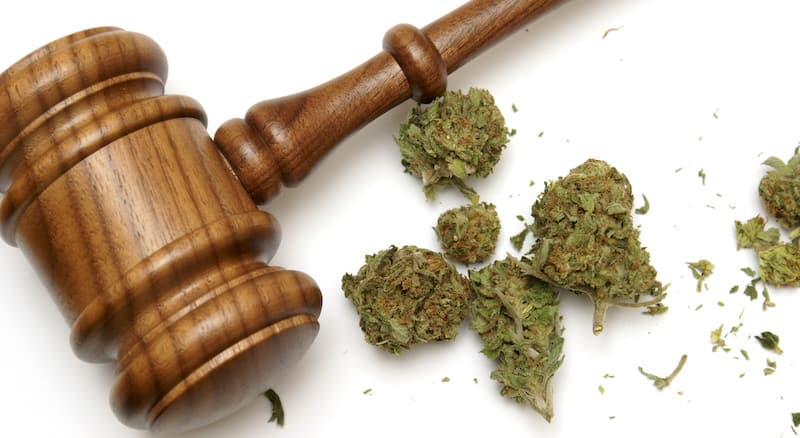
With the passing of Proposition 207 in the November 2020 election, recreational marijuana is now legal in Arizona. Since marijuana use in Arizona by adults over the age of 21 is legal for both recreational and medical purposes, some people might be unaware that they can be charged with a DUI on marijuana if they are driving while impaired to the slightest degree.
Even though marijuana is now legal, it is still against the law if you “drive while high” – but there are numerous factors to determine whether or not a person is impaired.
If you are facing drugged driving charges, you should get help from an experienced DUI attorney at Colburn Hintze Maletta.
What is a Marijuana DUI in Arizona?
Like alcohol, it is against Arizona DUI laws to use marijuana that has THC while in actual physical control of a vehicle and you can be charged with a DUI if you are impaired by it. Unlike alcohol, which has a per se limit of 0.08, the state does not have a per se limit for marijuana in your system.
Under ARS 28-1381, you can be charged with driving under the influence of marijuana if you are impaired to the slightest degree or when you have the presence of active marijuana in your system.
If you are younger than 21, you cannot drive with any amount of marijuana in your system whether or not your driving is impaired.
Unlike alcohol, there is no breath test available for marijuana. If an officer suspects that you were using marijuana while driving, you will be asked to consent to a blood test, or the officer will secure a warrant to draw blood from you for testing.
If you refuse to submit to a blood test, you will face administrative penalties on your license from the Arizona Department of Motor Vehicles. Under ARS 28-1321, all drivers in Arizona are deemed to have given implied consent for their breath, blood, or urine to be tested for the presence of alcohol or drugs.
A refusal can result in a 12-month suspension of your license that will be consecutive to any license suspension you might receive for a DUI conviction. Refusing to submit to a blood test can also be used against you as evidence at a DUI trial.
The blood test used to test for marijuana will determine whether certain THC metabolites are present in your blood. If active metabolites are identified in your blood, you can be charged for drugged driving. You can also be charged with this offense if you are impaired to the slightest degree. This includes any impairment of your motor coordination as indicated by erratic driving, slurred speech, trouble walking or standing, and failing the roadside tests administered by the officer.
DUI Drug Laws and Medical Marijuana
Medical marijuana has technically been legal in Arizona since 2010. However, you can still be charged with a DUI as a medical marijuana patient if you drive under the influence. Like any other prescribed drug, you can be charged with a DUI if you ingest marijuana containing tetrahydrocannabinol (THC) before driving or while driving. Having a medical marijuana card does not prevent you from being charged.
One problem with the DUI laws for medical marijuana patients is the inclusion of a section of the DUI law that allows people to be charged if they have marijuana or its metabolites in their systems. Unlike alcohol, which is processed through your body within a few hours, marijuana metabolites can remain in your system for days.
The Arizona Medical Marijuana Act allows qualifying patients to carry a medical marijuana card to show that they can legally possess and use a limited amount of marijuana for medical purposes. This conflicts with the state’s DUI law, which provides that people can be charged with a DUI if they have any amount of marijuana or its metabolites in their systems.
In Dobson v. McClennen, 238 Ariz. 389 (2015), the Arizona Supreme Court resolved this conflict. The court found that having a medical marijuana card can be asserted as an affirmative defense against a DUI charged under ARS 28-1381(A)(3). The burden of proof will then shift to the prosecutor to prove beyond a reasonable doubt that the marijuana in your system impaired your ability to drive safely.
First published at https://ift.tt/F5flJmS